QUICK HITS
10 UK nightclubs close every month, with 37% of nightclubs having closed since March 2020. Now, The Night Time Industries Association (NTIA) has calculated that if nightclubs continue to close at the current trajectory, none will be left by 31 December 2029. I don’t know what to say, no one wants to party anymore.
I have these boxes in my head, but Addison Rae refuses to fit into any of them. I don’t know what she is, and I don’t know what she’s doing, but I can’t look away.

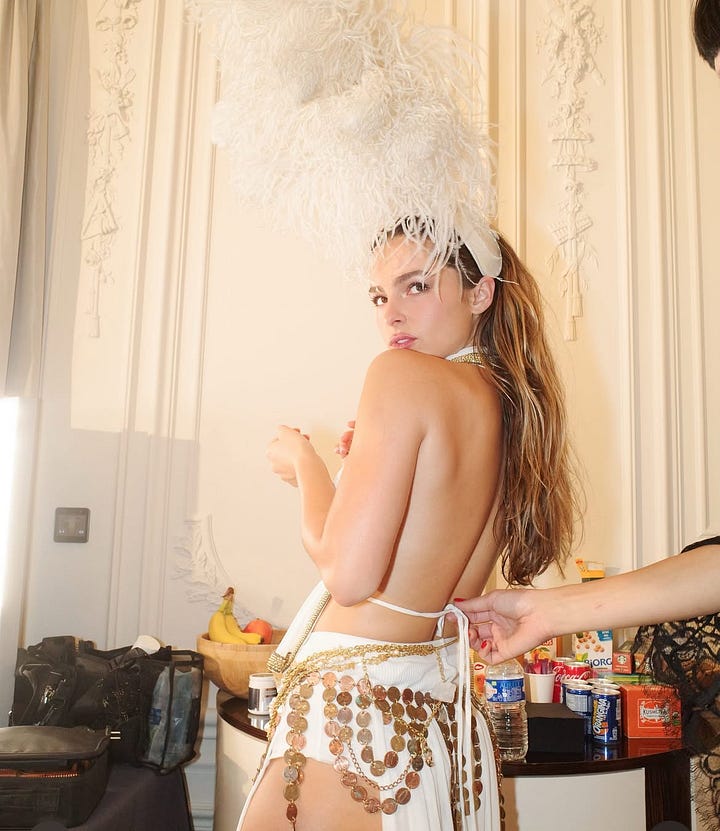
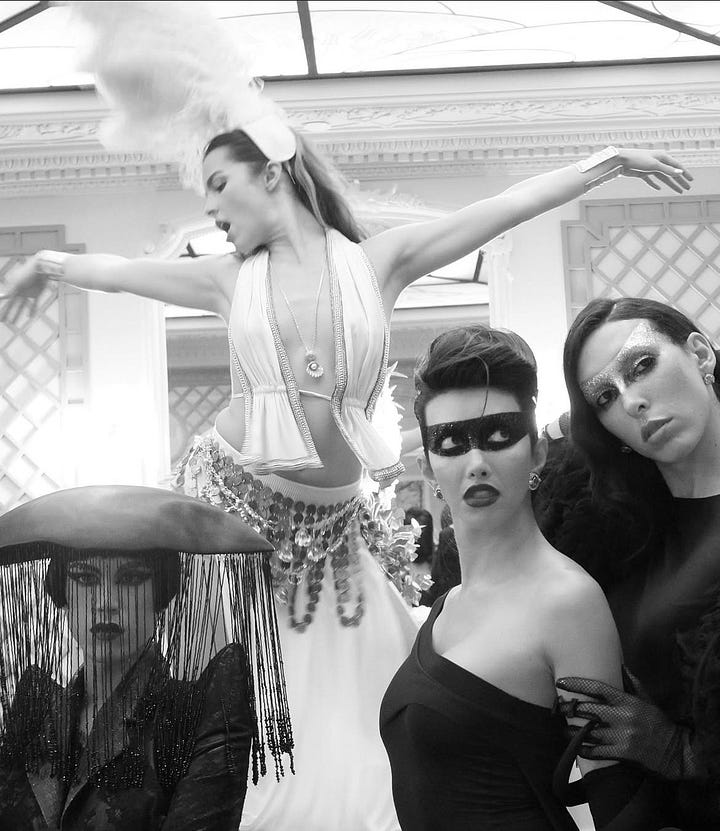
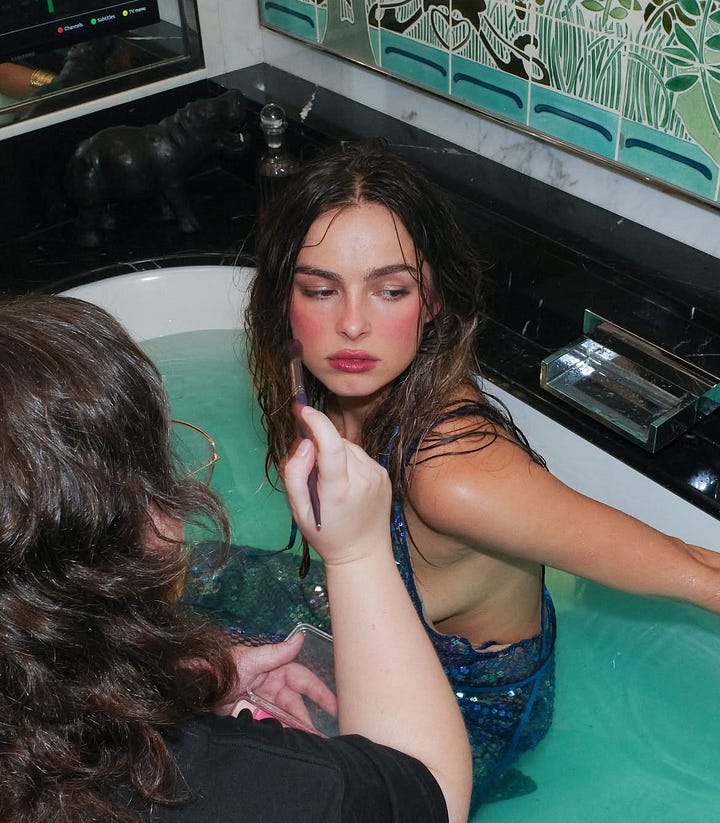
A recent study by the American Academy of Matrimonial Lawyers (AAML) reported a 62% increase in the number of clients requesting prenuptial agreements, with more than half of the attorneys surveyed citing Millennials as the driver of those requests. Another AAML study found that 45% of attorneys saw more women providing spousal support, leading to more women initiating prenups. In 2023, over 40% of Gen Z and Millennial couples signed a prenup. This is the kind of information I write this newsletter for. Prenups used to be for the uber-wealthy; now they're for anyone building something. I guess Millennials and Gen Z adults have been appropriately traumatized by the nasty divorce battles we've seen play out in our parents' generation. We also watch a lot of TV and are a lot less optimistic about everlasting love. People are taking that 42% divorce rate very seriously! In the last month, I’ve had two friends tell me they expect to end up divorced in 20 years, statistically speaking. They didn’t seem torn up about it. And that bit about more women paying spousal support for their husbands is a perfect tie-in to everything I said about the rise of the "househusband" on Wednesday. First, a new company calling itself the TurboTax of prenups just announced an oversubscribed $4.2 million seed round. They’re going to kill it, obviously.
There are 27 million paid content creators in the U.S., and 44% of them say social media is their full-time job. Last year, U.S. advertisers paid content creators $26 billion, according to Statista. I’m deeply fascinated by the dynamics—and economics—of couple TikToks. Like, what if you guys break up? Vivian Tu, a financial literacy content creator, told the WSJ that she wrote up a prenuptial agreement that included all her social media accounts before she got married in June. “My social media is my résumé,” she said. “Why would I allow anybody else to put my work on their résumé?”
Gen Z’s favorite productivity tool is taking on Google Workspace. At their first "Make With Notion" user event yesterday, Notion announced plans to launch a Mail product early next year. My first thought was, huh, quickly followed by, okay, I can see it. Earlier this year, the social media famous productivity company launched Notion Calendar, soon followed by Notion AI. Both products integrate with Notion’s core tool, as do Notion Mail and Notion Form, a new tool for collecting responses, similar to Google Forms. Notion Mail will also integrate with Google and Gmail at launch, which is smart. It's clear that Notion wants to become the full-service productivity app. I really think they could.
Perfectly Imperfect, the Substack recommendations newsletter, is leaving Substack. “In the last year or so, there’s been a huge push for newsletter writers to make use of Substack’s app specific features such as Chat, Notes, and Live Video, which are great for generating followers, but not necessarily subscribers. The problem is, you don’t own your followers, and you can’t export them along with your subscribers if you ever decide to move elsewhere… As a user of Notes, I enjoy the community and content, but as a writer I see it as a big step towards getting writers more dependent on Substack’s app, which will make it much harder to leave someday.”
When I graduated in 2021, in the depths of the pandemic, half of my Economics graduating class decided they wanted to attend grad school. I remember my professor saying that during periods of labor force uncertainty, young people always went back to school. According to the WSJ, M.B.A. applications have increased 12% in 2024, with full-time, in-person programs seeing a 32% increase. Applications to Columbia Business School rose 27%, HBS registered a 21% increase, while applications to the Booth School of Business at the University of Chicago were 22% higher than 2023. Part-time and flexible M.B.A. programs are also seeing increased demand. “Young college grads choosing to go back to school say the decision could make them stronger job candidates in the future. Both young workers and laid-off older workers often gravitate toward M.B.A. programs during times when they think there could be an economic downturn.”
Business Insider then reported that Americans are quitting their jobs at the lowest rate since 2015 (excluding a dip in April 2020), the reason being that the hiring slowdown is making it harder for people to land raises and promotions. Out of all the trends I talk about, this one ranks in the Top 3 for “Alive And Well In My Friend Group.”
Ella Emhoff launched a Substack yesterday. One day, everyone cool will have a Substack, and “announcements” like this will be redundant. Maybe they already are.
The head of The L.A. Times’s editorial board resigned on Wednesday after the paper’s owner, Patrick Soon-Shiong, quashed a presidential endorsement for Kamala Harris. Publications and their billionaire saviors—Jeff Bezos owned Washington Post also hasn’t made an endorsement! Speaking to the Columbia Journalism Review, now ex-editorial director Mariel Garza said, “I want to make it clear that I am not OK with us being silent. In dangerous times, honest people need to stand up. This is how I’m standing up.” Two more members of the editorial board, Robert Greene and Karin Klein, quit yesterday. It's been a tense year for newsrooms everywhere. Back in June, Condé Nast fired its first head of DEI amid internal tensions over alleged antisemitism and arguments about Gaza coverage. “I have never experienced anything as intense as that moment, and I’ve been leading newsrooms for a long time. The depth and intensity of emotion, and the microscopic scrutiny of every word and every headline, is like nothing I’ve been through,” a top editor told New York Magazine.
Trader Joe’s, Walmart, McDonald’s, and Burger King are removing fresh onions from their menu items after being identified as the likely source of an E. coli outbreak at McDonald’s that has sickened 49 people and resulted in one death. Stay safe kids.
TKO Group, which owns WWE and UFC, is acquiring Professional Bull Riders, On Location, and IMG from Endeavor Group in a $3.25 billion stock deal, increasing Endeavor's stake in TKO from 53% to 59%. The deal will broaden TKO's sports reach, adding luxury hospitality services via On Location and media rights consultancy through IMG. “Sports unify us and have never been in more demand,” said Mark Shapiro, president and chief operating officer of both Endeavor and TKO. Endeavor is going through a transition—the sports and entertainment company announced its agreement to get acquired by private equity firm Silver Lake in April, essentially taking the company private. Now it’s divestment season. Anyway, I need to learn more about bull riding.
I'm insanely jealous of Emily Gould, the New York Mag features writer who gets to write The Cut’s new monthly bookish newsletter. Book Gossip sounds like it's going to be a mix of book reviews and publishing industry gossip, which is what as seen on would be in a different world. I’ve been planning to cover more publishing industry news for a while now, and I’m taking this as a sign. I’ll be scrolling through my subscriber list this weekend; expect an email from me if you work in publishing. We have things to discuss.
Netflix ditched their plans to go big on games (rightly so); instead, they’ve teamed up with TED Talks for a daily word-puzzle game. "TEDplayers will slide rows of scrambled letters on a grid to create words, aiming for the longest possibilities while earning points and building word chains." To be in Media is to covet something The New York Times has. For LinkedIn, and now Netflix, I guess that’s Wordle.
I’m picking up what these streaming companies are putting down, which is that the theatrical release is an endangered strategy. Last month, Apple rolled back plans to release movies in theaters after a series of box office disappointments, including Killers of the Flower Moon, Argylle, and Fly Me to the Moon. Despite initially aiming to spend $1 billion annually on cinema releases, Apple canceled plans for Wolfs—an action comedy with George Clooney and Brad Pitt—to open in thousands of theaters worldwide. Instead, the movie debuted in a limited number of venues before becoming available on Apple TV+. Wolfs became the most-viewed movie in Apple TV+ history. Netflix co-CEO Ted Sarandos has been pretty clear about where the company stands on theatrical releases—Netflix is focused on driving customers to its streaming service, movie theaters are a shrinking business, and its most popular movies are watched by even more people than those released theatrically anyway. Now, in an interview with The Hollywood Reporter, Amazon MGM Studios head Chris Ottinger shared that the team at Amazon found that, in recent years, their original titles are enjoying success with the broadcasters comparable to theatrically released projects, though he reiterated the company’s commitment to theatrical releases.
However, a new UCLA study surveying 1,500 young people aged 10 to 24 across the U.S. found that going to the movies is that demographic’s “favorite thing to do”, above watching sports, playing video games, and streaming movies. The report also found that 36.2% of adolescents prefer fantasy over other genres; 63.5% value stories about friendship and platonic relationships over romance; and 62.4% believe that sex scenes are not necessary to advance the plot of TV shows and movies. Still, I think Netflix and Apple probably have the right strategy for the kinds of movies they make, which are pretty objectively mid-tier. Something the report might not have captured is that going to the movies is often an occasion—something to do in groups and after much anticipation. People aren’t going to the movies to watch Lonely Planet, and Netflix knows that.
Last thing on that note: Margot Robbie walked away from a deal with Netflix for her upcoming adaptation of Wuthering Heights because she wanted a theatrical release, and they refused to give it to her. Netflix was willing to pay $150 million, but she went with Warner Bros., who offered $80 million.
Moon Juice launched a cherry version of their magnesium powder yesterday. There’s something about the color red in campaign assets that makes me feel something. Lots of things, actually. It's just so fun and sophisticated.
Keurig Dr Pepper is buying Ghost for over $1 billion. Per the terms of the deal, Keurig will make an initial cash investment of about $990 million for a 60% ownership stake in the energy drink maker, with plans to acquire the remaining 40% in 2028. Keurig has a market value of nearly $50 billion and a large portfolio of brands, including Sunkist, Canada Dry, Green Mountain Coffee Roasters, and newer names like Venom Energy and Bai. This acquisition marks their largest deal since acquiring Dr Pepper Snapple Group in 2018 for nearly $19 billion in cash. The company is clearly bullish on the energy drink market— they bought a 30% stake in Nutrabolt, the maker of C4 Energy, for $863 million in 2022 and invested in two other energy drink lines since. Ghost may not be the buzziest brand—a humble bodega staple—but its sales have more than quadrupled over the past three years.
Wegovy and Ozempic maker Novo Nordisk has once again asked the FDA to ban compounding pharmacies from making cheaper versions of the weight loss and diabetes medications, arguing that the medications are too complex for those manufacturers to make safely. (Which is true, but a cottage semaglutide dupe industry likely isn’t helping their balance sheet either). In 2022, both semaglutide and tirzepatide (the active ingredient in Zepbound and Mounjaro) joined the FDA’s shortage list, allowing compounding pharmacies to start making them. New weight-loss-focused telehealth companies like Amble Health, Emerge, and Ivím sprang up almost overnight to sell compounded drugs at reduced rates, and as The Cut chronicles, a legion of telehealth-sponsored micro-influencers emerged alongside them. Earlier this month, the FDA announced that the tirzepatide shortage had been "resolved," but before that, Eli Lilly had sued several weight loss clinics, medical spas, and compounding pharmacies across the U.S. over the past year. Novo Nordisk, too, has filed 50 lawsuits against various clinics, compounding pharmacies, and other manufacturers during the same period. A trade group representing some compounders sued the FDA after it took tirzepatide off the shortage list, so whatever decision they make with this ban, there’s going to be many upset stakeholders.
Lina Khan strikes again, this time blocking Tapestry’s $8.5 billion acquisition of Capri Holdings and essentially squashing any dreams of a would-be American (discount) LVMH. In August 2023, Tapestry, which owns Kate Spade, Coach, and Stuart Weitzman, agreed to acquire Capri, the parent group of Michael Kors, Versace, and Jimmy Choo. The deal was positioned as a way to help the companies compete with European conglomerates like Kering and LVMH, but then the FTC sued, stating that the acquisition would limit competition in the “accessible luxury” market, possibly raising prices by 17%, with a $365 million annual impact on consumers. Capri’s shares have been trending higher in recent weeks, as hedge funds and other investors bet heavily on the trial. Shares of Capri dropped 47.1% after the decision was announced, but shares of Tapestry gained 10.9%. My two takeaways: 1.) At this point, Lina Khan has won more cases for the FTC than she’s lost. She’s great at her job; Wall Street and Silicon Valley are not fans. 2.) If this sets a precedent, it will become much more difficult for U.S. companies to utilize a roll-up strategy as part of a growth strategy.
Praying for Law Roach that whatever he’s doing with Pepsi (Pepsi!) doesn’t hurt his brand, and that the size range is not, in fact, XS to XL.
But why is Zara so cool? Deeply suspicious of their pre-owned program but this is a great launch video.
I’ve worked in sports my entire (3-year) career.
My first real job was as an Assistant Merchant for Adidas Originals. After a few months, I moved over to the Originals Brand Comms team, where I got to work on the coolest campaigns and had a front row seat to how sports intersects with culture.
I don’t often share my views on sports news in this newsletter for conflict reasons, but that's going to change because now more than ever, sports is culture, and culture is sports. It is a great time to be covering what's happening at the intersection of both.
Picture a Venn diagram, with several circles representing all the industries I love to talk about, and sports at its center. In the past year, we’ve had athletes launching CPG brands, luxury fashion buying and sponsoring sports teams, major athletes taking center stage at concerts, beauty brands teaming up with sports teams, and female athletes gracing the covers of major publications. Viewership of women’s sports is at an all-time high, WAGs are back, fast fashion is responding accordingly, and sales of sports romances are through the roof.
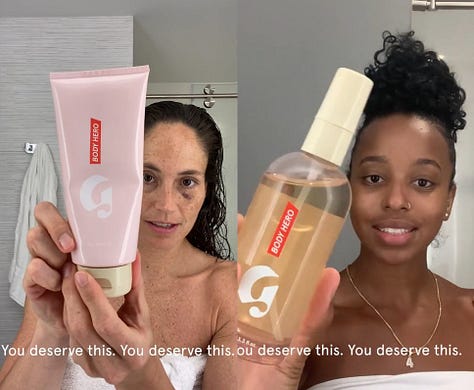
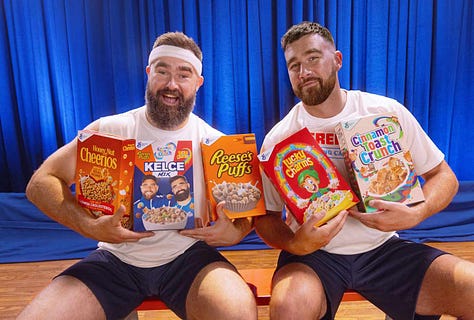

No one knows more about the intersection of sports and culture than the team at Offball, a new sports culture media company created by Michaela Hammond, who was part of the founding team of The Players’ Tribune; former Sports Illustrated editor-in-chief Chris Stone; and Adam Mendelsohn, whose comms firm Upland Workshop played a role in starting new media outlets Puck and LeBron James’ SpringHill Company.
OffBall’s daily newsletter is one of the first in my inbox every morning. It’s quick, comprehensive and fun.
OffBall is covering the culture of sports, but not sports itself. How did your team decide that was the area you wanted to play in?
Today, sports are impacting everything and dominating the cultural conversation. Athletes have become the new Celebrity, and all industries are engaging with sports because of their influence.
There’s no denying sports’ cultural sway and the fact that the conversation in the space has become more about the culture around the game than the game itself; talk of tunnel fits, WAGs, and who’s sitting court side has overtaken talk of box scores and yards per carry.
We are curating all the content, stories, and narratives we talk about in our group chats, at happy hours, and during cookouts. OffBall was created to serve everyone who cares about the energy surrounding sports.
What is the OffBall approach to covering women's sport?
We don’t have an overt strategy or approach to covering women’s sports, but OffBall responds to and captures what matters in culture, and there’s no doubt that female athletes have been central to advancing and impacting culture. We’ve seen an incredible increase in excitement, attention, and investment around women’s sports in recent years, and I’ve had a front-row seat to this exponential growth because my sister plays for Angel City FC and has been in the NWSL for five years. Women’s sports and female athletes have long been leaders in transcending sports, but the recent explosion in interest has only amplified their impact. At OffBall, we are obsessed with all the different ways that female athletes and women’s sports are driving the conversation.
Gen Z is getting most of their sports content on social media vs streaming or cable. What are the implications of this for sports media?
Trends like these have forced a seismic shift in how leagues, brands, and teams are thinking about reaching people, and they’ve created an absolute explosion of sports-related content as more and more creators have launched IGs, TikToks, YouTube channels, newsletters, and more. This was the year of the TikTok Olympics in Paris, and now, all major sports leagues are working to court influencers because of their importance to the media ecosystem. This is, of course, creating an explosion of content that’s so hard to keep up with, which is part of the utility OffBall wants to offer our audience; we’re online so you don’t have to be.
Creators inspire us because they are infusing a level of cultural conversation into sports. We want to partner with them and continue amplifying their work.
Any hot takes on how brands are working with athletes right now?
No hot takes other than how hard it is to differentiate yourself in a crowded environment when all brands are running to sports to make an impact. OffBall is a curator, but we are also partnering with brands as a storytelling thought partner to help them breakthrough in this crowded landscape. At this point, simply activating in sports or with athletes isn't enough to break through; you have to have the right story hit the right audience to make an impact.
What or who else in this space excites you?
A bit redundant, but I am consistently excited by all of the interesting creators who are emerging as true cultural commentators across the sports media landscape. Previously that was #NBATwitter and creators like Josiah Johnson, Jasmine Watkins, ArtButMakeitSports, and more. Now I’m also loving the newsletter community, where it feels like you have an intimate relationship with someone you like and trust who will take you through all the info you want to know in a fresh and interesting way.
Talk next week xo

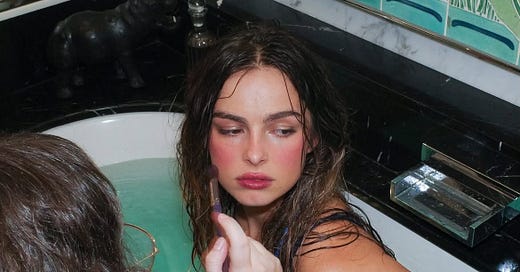




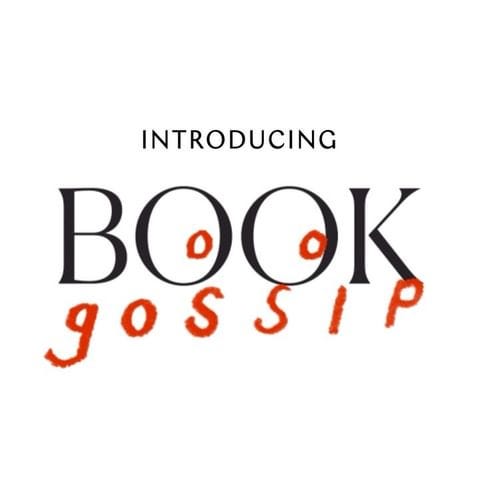
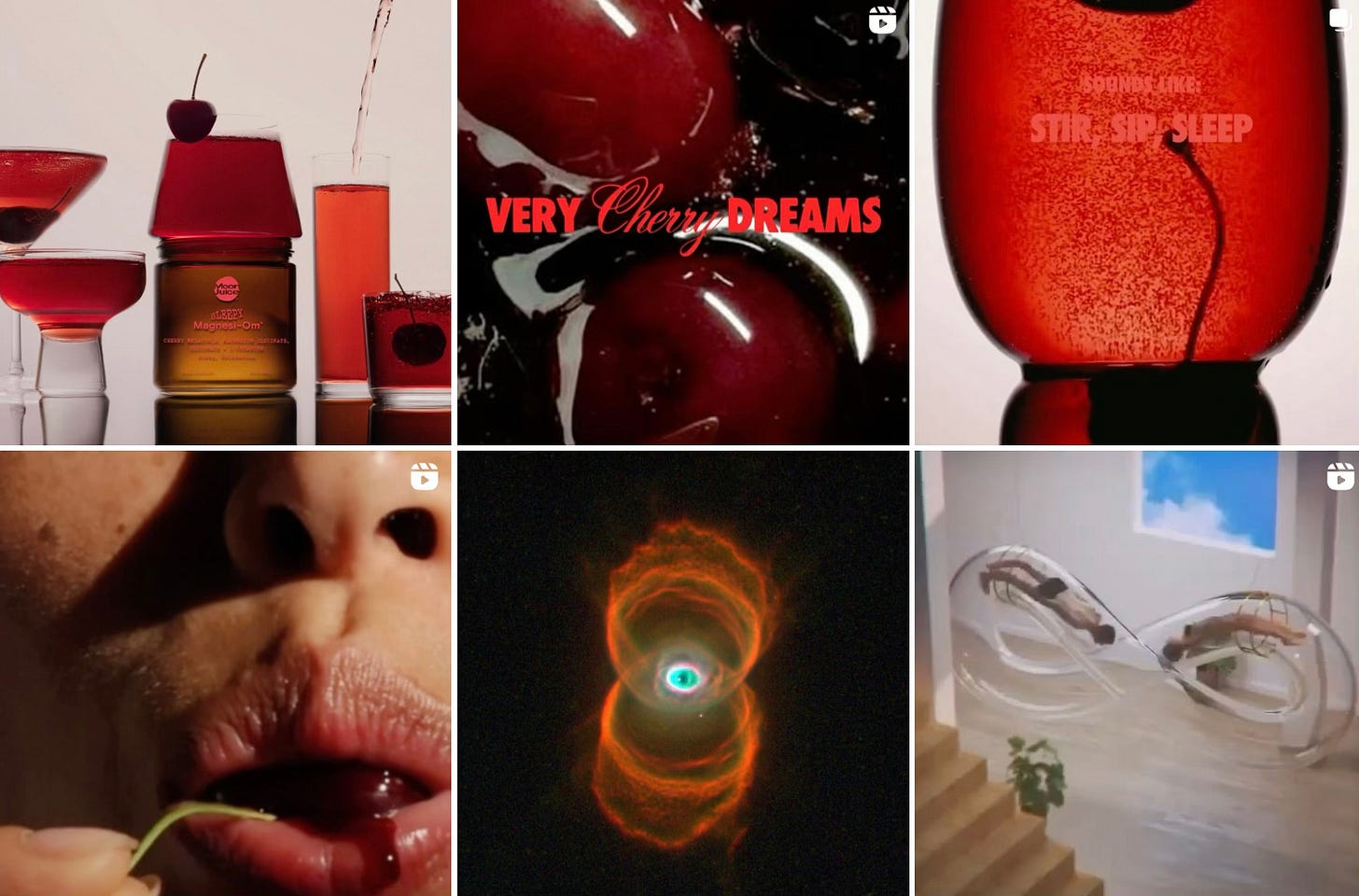


Extremely here for the prenup discourse (I have one!) — needs to be talked about and normalized more.
Sports as culture = the reason why I loved Challengers. Love the interview!!!